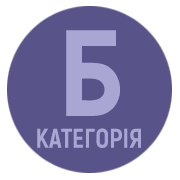DIGITAL DISCOURSE IN SOCIAL NETWORKS: METHODOLOGICAL CHALLENGES OF DISCOURSE ANALYSIS
DOI:
https://doi.org/10.32782/philspu/2025.10.7Keywords:
digital discourse, social networks, discourse analysis, critical discourse analysis, multimodality, algorithmic mediation, online communicationAbstract
This paper considers and explores the peculiarities of applying discourse analysis to the study of communication practices in socialmedia, which have become key channels for digital interaction in the twenty-first century. Social media have not only transformedtraditional models of communication, but also created a new reality for discourse, in which language is closely intertwined with visual, audio, and technical elements. Online discourse is characterised by a high level of dynamics, multimodality, fragmentation, interactivity and algorithmic mediation, which creates new challenges for linguistic analysis. The study focuses on the need to update methodological approaches, in particular, the adaptation of applied linguistics tools to the conditions of a hybrid digital environment.The main directions of modern discourse analysis that have analytical potential for the study of online communications are analysed:critical discourse analysis, multimodal approach, cognitive discourse analysis and corpus linguistics. Particular attention is paidto the problems of interpreting multicode messages that combine text, images, emojis, videos, and various interactive elements.Considerable attention was also paid to the impact of the platform's algorithms on the structuring of meanings, modelling the visibilityof messages, and representation of identities. The necessity of an interdisciplinary approach consisting of linguistic, sociological,cognitive and analytical approaches is substantiated. The scientific novelty of the study is an attempt to comprehensively understand the methodological transformation of discourse analysis in the digital age. The practical significance lies in the possibility of using the results obtained in further studies of digital discourse, including for the analysis of identity, conflict communication, information campaigns, political and media discourse in the online environment. The materials of this paper may be useful for specialists in the fieldsof applied linguistics, Internet communication, social media and digital humanities.
References
Adami E., Jewitt C. Multimodality and Social Media: Sociological and Aesthetic Perspectives. London: Routledge, 2016. 240 p.
Adami E., Jewitt C. Multimodality and Social Semiosis: Communication, Meaning-Making, and Learning in the Work of Gunther Kress. London: Routledge, 2016. 248 p.
Androutsopoulos J. Networked Multilingualism: Some Language Practices on Facebook and their Implications // International Journal of Bilingualism. 2016. Vol. 19, No. 2. P. 185–205.
Baker P., Egbert J. Triangulating Methodological Approaches in Corpus Linguistic Research. London: Routledge, 2016. 200 p.
Barton D., Lee C. Language Online: Investigating Digital Texts and Practices. London: Routledge, 2015. 224 p.
Blommaert J. Discourse: A Critical Introduction. – 2nd ed. Cambridge: Cambridge University Press, 2015. 264 p.
Flowerdew J., Richardson J. E. (Eds.). The Routledge Handbook of Critical Discourse Studies. London: Routledge, 2018. 638 p.
Gee J. P., Handford M. (Eds.). The Routledge Handbook of Discourse Analysis. London: Routledge, 2015. 709 p.
Georgakopoulou A. Narrative Complexity and Microblogging: Storytelling on Twitter // Journal of Sociolinguistics. 2017. Vol. 21, No. 4. P. 523–539.
Jones R. H., Chik A., Hafner C. A. Discourse and Digital Practices: Doing Discourse Analysis in the Digital Age. London: Routledge, 2015. 228 p.
KhosraviNik M. Social media critical discourse studies (SM-CDS) // Critical Discourse Studies. 2017. Vol. 14, No. 3. P. 271–280.
KhosraviNik M. Digital Media and Society: Critical Perspectives. Cambridge: Polity Press, 2020. 238 p.
Page R. Narratives Online: Shared Stories and Social Media. Cambridge: Cambridge University Press, 2018. 218 p.
Puschmann C., Scheffler T. Topic Modeling for Media and Communication Research: A Comparison of Co-Word, LDA, and Labeled LDA Topic Modeling // Digital Journalism. 2016. Vol. 4, No. 1. P. 1–21.
Snee H. Ethics in Digital Research // Sloan L., Quan-Haase A. (Eds.). The SAGE Handbook of Social Media Research Methods. London: Sage, 2018. P. 116–133.
Tagg C. Exploring Digital Communication: Language in Action. London: Routledge, 2015. 190 p.
Tagg C., Seargeant P., Brown A. Taking Offence on Social Media: Conviviality and Communication on Facebook. London: Palgrave Macmillan, 2017. 241 p.
Townsend L., Wallace C. Social Media Research: A Guide to Ethics. Aberdeen: University of Aberdeen, 2016. 32 p.
Tufekci Z. Algorithmic Harms beyond Facebook and Google: Emergent Challenges of Computational Agency // Colorado Technology Law Journal. 2015. Vol. 13. P. 203–218.
van Dijck J. The Culture of Connectivity: A Critical History of Social Media. – Oxford: Oxford University Press, 2013. 240 p.
Wetherell M. Identity and Affect in Discourse Theory // Angermuller J. et al. (Eds.). The Routledge Handbook of Language and Identity. London: Routledge, 2016. P. 76–91.
Wodak R., Meyer M. Methods of Critical Discourse Studies. – 3rd ed. London: Sage, 2016. 256 p.
Zappavigna M. Searchable Talk: The Linguistic Functions of Hashtags // Social Semiotics. 2015. Vol. 25, No. 3. P. 274–291.
Zappavigna M. Searchable Talk: Hashtags and Social Media Metadiscourse. London: Bloomsbury, 2018. 288 p.








